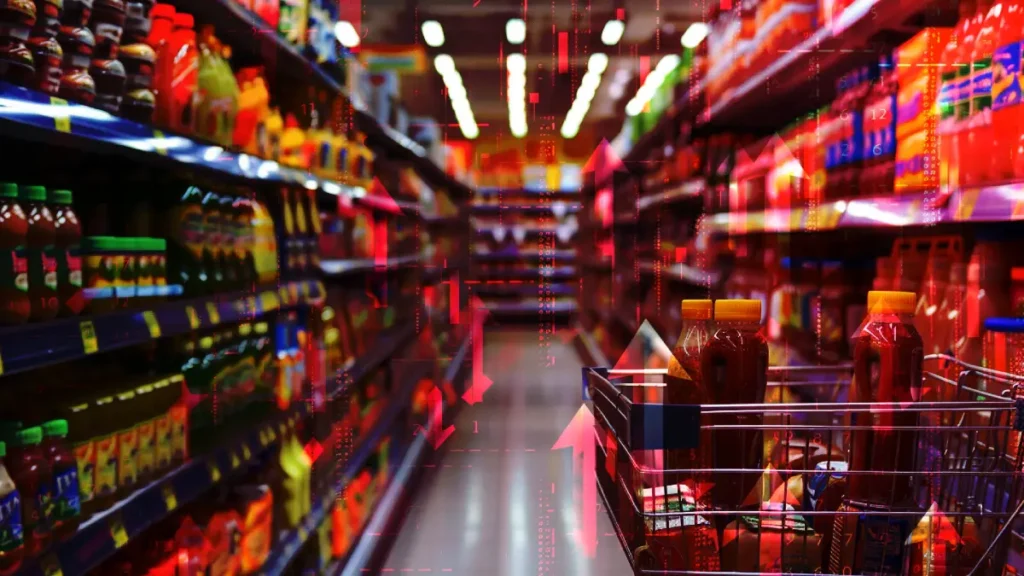The recent inflation data released by the government shows a slight decline in food inflation. However, many shoppers still feel the strain of high grocery prices. A recent report by Intuit Credit Karma revealed that 80% of Americans had noticed a significant rise in grocery costs over the past few years.
Increasing Grocery Prices
According to the report, grocery prices have gone up by 25% since the pandemic started. Some consumers even had to reduce spending on necessities to afford their groceries.
Among those affected, 28% prioritized groceries over needs like rent or bills, while 27% sometimes skipped meals. Furthermore, 18% have applied for or considered food stamps, and 15% rely on or have considered turning to food banks.
On the other hand, 53% of the consumers said that they earn too much to qualify for food stamps or other government assistance that is available out there. However, they still seem to be still struggling to afford necessities.
Most consumers have noticed higher grocery costs, with 51% also observing increases in gasoline prices and 39% increasing cable, electricity, and internet bills.
Additionally, 27% of consumers said housing costs had risen, and another 27% felt the rising dining-out expenses.
The survey, conducted online by Qualtrics for Intuit Credit Karma, took place from May 7 to May 13 and involved 2,011 adults.
How to Tackle the High Grocery Costs?
Senator Elizabeth Warren, D-Massachusetts, talked about the increasing grocery prices during a recent Senate hearing and said they continued to rise even after the pandemic ended.
Some retailers are responding to consumer price fatigue by lowering grocery prices. Target aims to reduce prices on about 5,000 items like meat, milk, fruits, and vegetables. Moreover, Amazon Fresh is planning price cuts on about 4,000 items both online and in stores. Walmart has also started offering discounts on items like groceries and sales on various products to help consumers cope with rising inflation.
For people facing challenges with grocery costs, Credit Karma has suggested using FeedingAmerica.org to locate a nearby food bank.
Trae Bodge, an expert at TrueTrae.com, said right now is a good time to start developing better spending habits that will help you save money in the long term. Despite decreasing food inflation, specific categories like juices, drinks, frankfurters, and bacon saw rising price hikes compared to last year’s figures as of May.
Experts recommend avoiding categories experiencing rising food costs to help maintain lower grocery expenses. Mark Hamrick, senior economic analyst at Bankrate, has said to adjust purchasing habits whenever reasonable. This could be done by dining at home instead of eating out or choosing chicken over beef.
Hamrick added that consumers have various opportunities to make cost-effective choices and substitutions to maximize value. Consumers can also get a good deal on discounts and promotions by exploring different retailers, both in-store and online.
Bodge has also suggested joining store loyalty programs to ensure they qualify for discounts or rewards. Switching to store or generic brands can also save money. Buying items in bulk could lead to savings of up to 40%, according to her. Additionally, certain websites and apps streamline the shopping process.
Read Also:
Fed Diverges from Global Peers, Keeping Rates Higher for Longer
Fed Meeting June 2024: Key Takeaways and Economic Outlook
Insights into the Average Net Worth and Retirement Savings in the American Households
